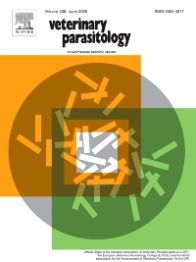Veterinary Parasitology
An international scientific journal and the Official Organ of the Association of Veterinary Parasitologists (AAVP)), thehttp://www.eurovetpar.org European Veterinary Parasitology College (EVPC) and the Association for the Advancement of Veterinary Par
This journal is concerned with those aspects of helminthology, protozoology and entomology
which are of interest to animal health investigators, veterinary practitioners and others with a special interest in parasitology.
Papers of the highest quality dealing with all aspects of disease prevention, pathology, treatment, epidemiology, and control of parasites
in all domesticated animals, fall within the scope of the journal. Papers of geographically limited (local) interest which are not of
interest to an international audience will not be accepted. Authors who
Parasitological studies on
laboratory animals fall within the scope of the journal only if they provide a reasonably close model of a disease of domestic
animals. Additionally the journal will consider papers relating to wildlife species where they may act as disease reservoirs
to domestic animals, or as a zoonotic reservoir. Case studies considered to be unique or of specific interest to the journal, will also
be considered on occasions at the
Studies on rickettsial disease organisms (Ehrlichia, Anaplasma, Eperythrozoon) will be considered for publication in Veterinary Parasitology, but only if the paper deals with vector transmission of these organisms to domesticated animals, or if zoonotic. Studies on Rickettsia per se will not be accepted.
Studies dealing with parasite control by means of natural products, both
Circumstances relating to animal experimentation must meet the International Guiding Principles for Biomedical Research Involving Animals as issued by the Council for International Organizations of Medical Sciences. (Obtainable from: Executive Secretary C.I.O.M.S., c/o W.H.O., Via Appia, CH-1211 Geneva 27, Switzerland.)




